How to make a child study on her own
7 Tips for Parents to Help Your Child Develop Effective Study Skills
Wednesday, January 12, 2022
Here’s the situation: Your child likes school. They enjoy their classes, teachers, and fellow students. They do their homework every night. They’re trying hard—but that effort and enthusiasm just isn’t translating to the kind of academic gains and grades you both want to see. If this sounds familiar to you, the key to helping your child crack the code on learning may be to focus on building some effective study skills.
Success in the classroom doesn’t come from any single thing—it’s about the right mix of attitude, habits, and effort. Strong study skills are an important ingredient in this recipe, and they’re very much learned behavior. “Straight-A students are not born—they're made,” explains Katie O’Brien and Hunter Maats, co-authors of The Straight-A Conspiracy, who have tutored hundreds of students and were collaborators on this Princeton Review study. “Every student in America is capable of getting the grades he or she wants without all the stress. Managing your emotions, putting away the distractions, and creating a straightforward study plan that makes learning faster and more fun are far easier than most students and parents believe them to be.”
So, as a parent, how can you help your child develop the study skills they need to achieve academic success—and see benefits beyond the classroom as well? Here’s seven tips to get started!
1. Create a designated study space for your students.Does your child have their own desk or workspace in an area of your home that is conducive to focused studying? Ask yourself if it’s well-lit and away from other distractions. Keep helpful study supplies on hand in this area, like colorful post-its, a variety of pens and pencils, highlighters, and scratch paper. Encourage your child to take ownership over the area by giving them freedom to decorate, and teach them to neaten up and organize their desk each night so they’re ready to get to work when it comes time for the next study session.
Time management is an incredibly important aspect of effective study skills. So, ensure your student knows how to keep a homework planner. Have them write down important due dates for homework and projects, especially if their teacher makes these dates known far in advance. Then, the key is to stay on top of these assignments. Prepare for important tests by helping your child break down the content and make a schedule for reviewing the material in the days leading up to the test. Break down big projects similarly by determining smaller milestones and working with your child to make a schedule for when they will have these components complete. This can offset cramming and procrastination (and build confidence in the process) by making their workload feel more manageable.
3. Take effective notes.Have you heard of Cornell Notes? Utilizing this classic note-taking system can help your child process information taught in class and truly retain what they’ve learned. There are even studies showing that writing notes out by hand results in better retention than not taking any notes or using a laptop. Teaching your child to use active reading strategies—like taking notes or highlighting key themes and passages—is also very helpful for retention.
There are even studies showing that writing notes out by hand results in better retention than not taking any notes or using a laptop. Teaching your child to use active reading strategies—like taking notes or highlighting key themes and passages—is also very helpful for retention.
Simply reviewing content before a test isn’t necessarily the best method to ensure your child is prepared for an upcoming test. Instead, encourage them to try more interactive approaches, like completing practice tests or using flash cards. Asking your child review questions and having them provide short essay-style explanations aloud can also be a great strategy to make sure they truly understand the material.
5. Avoid cramming.Studying a little bit of a subject every day is much better for long-term retention than studying for a longer period of time a single day. Help your student structure a study schedule that will allow them to space out their practice on different subjects—as little as 10 minutes of practice a day can help! It’s also important to encourage your student to break up their studying with smart breaks. Taking a 15-minute break once every hour can work wonders on keeping them focused and productive.
Taking a 15-minute break once every hour can work wonders on keeping them focused and productive.
Perhaps your student is struggling with understanding a specific lesson in a particular subject or doesn’t quite understand the night’s homework assignment. When this is the case (and it happens to everyone at some point or another) asking for help is key. Teach your student how to bring up challenges early with a teacher and ask for help—and don’t be afraid to bring up concerns with their teacher yourself either. Teaching your child how to build effective working relationships with other students and asking their peers for help is another important lesson in asking for, receiving, and offering support.
7. Avoid distraction.Teach your student how to put their computer away and turn off all other devices that may serve as a form of distraction while they’re studying. Multi-tasking also takes away from learning, so encourage your child to focus on a single subject for a sustained period of time before moving onto another subject. And above all, ensure that your child has healthy sleeping and eating habits in order to maximize their focus and make the most of time spent studying.
And above all, ensure that your child has healthy sleeping and eating habits in order to maximize their focus and make the most of time spent studying.
There’s no shortage of strategies for parents to help your child build the solid study skills necessary for success in the classroom. For more tips, check out these great resources:
- 8 Ways to Help Kids Ace Tests from Parents Magazine
- 7 Tips for Improving Your Child’s Homework and Study Skills from Understood
- Homework and Study Habits: Tips for Kids and Teenagers from the Child Development Institute
Looking for a tool to help your children practice grade-appropriate skills in math, ELA, science, and social studies as they prepare for midterms or end-of-semester exams? Check out our Family Resource hub!
This post was originally published September 2017 by Elaine Ho and has been updated.
Parent Involvement
Test Preparation
McKenna Wierman
McKenna Wierman studied Journalism at the University of Mississippi, and has worked with Edmentum since June 2016. She currently serves as a Digital Marketing Specialist, and believes that empowered teachers are the key to successful students.
She currently serves as a Digital Marketing Specialist, and believes that empowered teachers are the key to successful students.
Tips For Helping Kids & Teens With Homework and Study Habits
Certain key practices will make life easier for everyone in the family when it comes to studying and organization. However, some of the methods may require an adjustment for other members of the family.
RELATED: Download Our Free Homework Charts!
- Turn off the TV. Make a house rule, depending on the location of the screen, that when it is study time, it is “no TV” time. A running tv will draw kids like bees to honey.
- What about the radio or other audio devices? Should it be on or off? Contrary to what many specialists say, some kids do seem to function well with the radio turned on to a favorite music station. (Depending on the layout of your house or apartment, maybe an investment in earbuds would be worthy of consideration.
 )
) - Set specific rules about using cell phones during study hours. For instance, use of a cell phone can only occur if it becomes necessary to call a schoolmate to confirm an assignment or discuss particularly challenging homework.
- Designate specific areas for homework and studying. Designate specific areas for homework and studying. Possibilities include the kitchen, dining room, or your child’s bedroom. Eliminate as much distraction as possible. Since many kids will study in their rooms, the function becomes more important than beauty. Most desks for kids don’t have enough space to spread out materials. A table that allows for all necessary supplies such as pencils, pens, paper, books, and other essentials works exceptionally well.
- Consider placing a bulletin board in your child’s room above the desk. Your local hardware store may sell wallboard that is inexpensive and perfect to post essential school items. You may decide to paint or cover it with burlap to improve its appearance or let your child take on this project.

- Keeping general supplies on hand is important. Check with your child about his or her needs. Make it his/her responsibility to be well supplied with paper, pencils, notepads, etc. Encourage the use of a notebook for writing down assignments so there is no confusion about when they must be turned in to the teacher.
- Consistency is a critical factor in academic success. Try to organize the household so that dinner is at a regular hour, and once it’s over, it’s time to crack the books. If your child doesn’t have other commitments and gets home reasonably early from school, some homework completion can occur before dinner.
- Consider your child’s developmental level when setting the amount of time for homework. While high school students can focus for over an hour, first-graders are unlikely to last more than 15 minutes on a single task. Allow your child to take breaks, perhaps as a reward for finishing a section of the work.
- Organize study and homework projects.
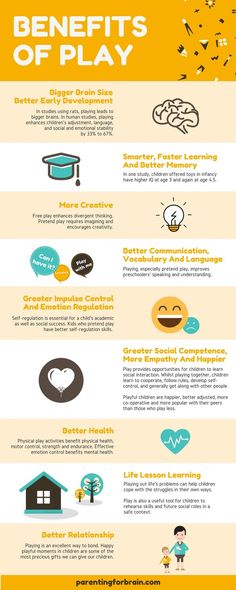 Get a large dry erase calendar — one that allows space for jotting things down in the daily boxes. Have your child use different bold colored dry erase markers to write exam dates, reports that are coming due, etc. This will serve as a reminder so that assignments aren’t set aside until the last minute.
Get a large dry erase calendar — one that allows space for jotting things down in the daily boxes. Have your child use different bold colored dry erase markers to write exam dates, reports that are coming due, etc. This will serve as a reminder so that assignments aren’t set aside until the last minute. - Teach your child that studying is more than just doing homework assignments. One of the most misunderstood aspects of schoolwork is the difference between studying and doing homework assignments. Encourage your child to do things such as:
- take notes as he’s/she’s reading a chapter
- learn to skim material
- learn to study tables and charts
- learn to summarize what he/she has read in his/her own words
- learn to make his/her own flashcards for a quick review of dates, formulas, spelling words, etc.
Note-taking is a critical skill and needs development. Many students don’t know how to take notes in classes that require them. Some feel they have to write down every word the teacher says. Others have wisely realized the value of an outline form of note-taking. Well prepared teachers present their material in a format that lends itself to outline form note taking.
Some feel they have to write down every word the teacher says. Others have wisely realized the value of an outline form of note-taking. Well prepared teachers present their material in a format that lends itself to outline form note taking.
Should notes ever be rewritten? In some cases, they should be, particularly if there is a lot of covered material. Sometimes a child has to write quickly but lacks speed and organization. Rewriting notes takes time, but it can be an excellent review of the subject matter. However, rewriting notes isn’t worth the time unless they are useful for review and recall of valuable information.
RELATED: Download Our Free Homework Charts!
Help your child to feel confident about taking tests. Test taking can be a traumatic experience for some students. Explain to your child that burning the midnight oil (cramming) the night before a test isn’t productive. It’s better to get a good night’s sleep.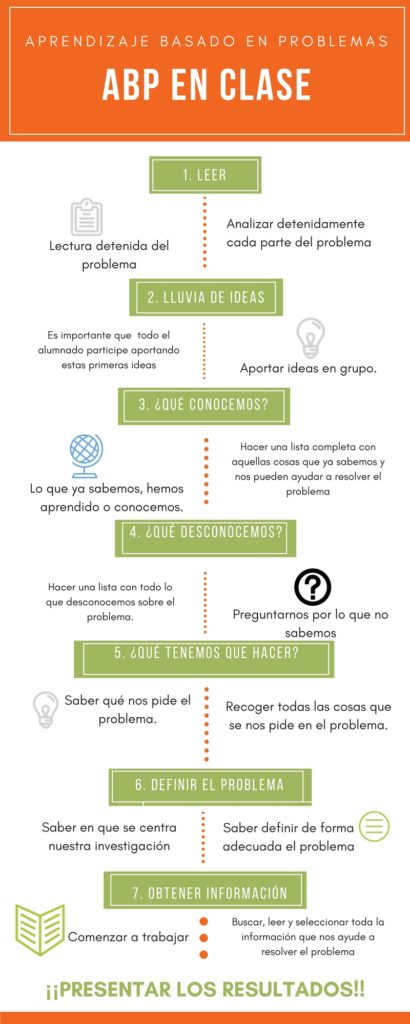
Students also need reminding that when taking a test, they should thoroughly and carefully read the directions before they haphazardly start to mark their test papers. They should be advised to skip over questions for which they don’t know the answers — they can always return to those if there’s time. Good advice for any student before taking a test: take a deep breath, relax, and dive in. Always bring an extra pencil just in case.
During a homework session, watch for signs of frustration. No learning can take place and little can be accomplished if your child is angry or upset over an assignment that is too long or too difficult. At such times, you may have to step in and halt the homework for that night, offering to write a note to the teacher explaining the situation and perhaps requesting a conference to discuss the quality and length of homework assignments.
Should parents help with homework? Yes — if it’s productive to do so, such as calling out spelling words or checking a math problem that won’t prove. No — if it’s something your child can handle himself and learn from the process.
No — if it’s something your child can handle himself and learn from the process.
Help and support should always be calm and cheerful. Grudging help is worse than no help at all! Read directions, or check over math problems after your child has completed the work. Remember to make positive comments — you don’t want your child to associate homework with fights at home.
Model research skills by involving your child in planning a family trip. Help him/her to locate your destination on a map or in an atlas. Use a traditional encyclopedia to find information about the place you will visit; try the Internet or books in the library.
How best to handle report cards? To save shocks and upsets, from time to time discuss how things are going at school with your child. You can say something casual, such as:
- “How did the math test go?”
- “How did you do on the history report?”
- “How’s your science project coming along? Need any help?”
These questions aren’t giving the “third degree,” but indicate interest.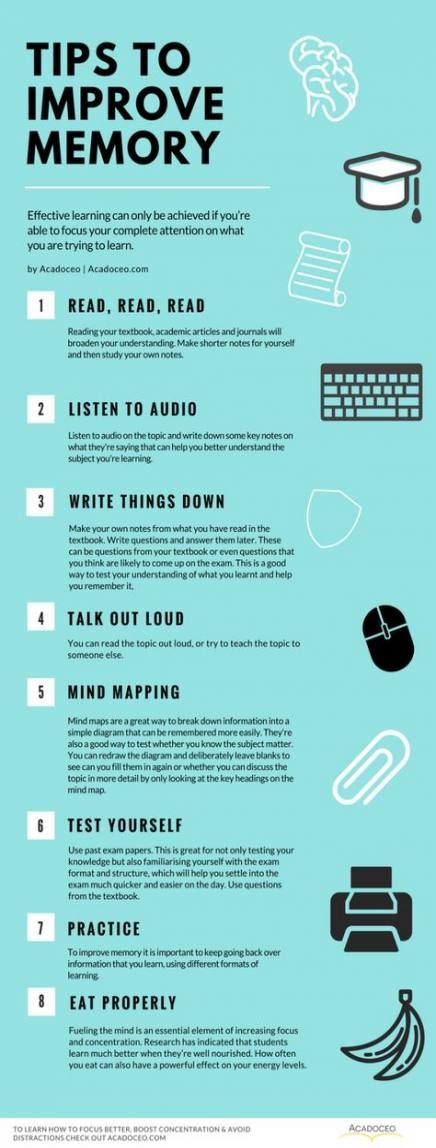 Find out if it’s a policy at your child’s school to send out “warning notices” when work isn’t going well. Generally, such notices require the parent’s signature to verify that the parent has, indeed, been alerted. This is the time to contact the teacher of course, along with your child, to learn what the difficulty may be. If such notices aren’t sent, then grades may be posted online.
Find out if it’s a policy at your child’s school to send out “warning notices” when work isn’t going well. Generally, such notices require the parent’s signature to verify that the parent has, indeed, been alerted. This is the time to contact the teacher of course, along with your child, to learn what the difficulty may be. If such notices aren’t sent, then grades may be posted online.
Be tuned in to statements such as “He’s an awful teacher,” “She goes too fast,” etc. This may be your child’s way of indicating frustration in understanding content or lack of study time with the subject. However, be cautious in contacting teachers without your child’s knowledge. It may disrupt good feelings between you and make you seem to be interfering.
RELATED: Download Our Free Homework Charts!
For lots of helpful FREE internet tools for research and mastering subjects check out these sites:
- Info Please – Homework Center
- Fact Monster
How to make a child learn and do homework? Psychologist's advice
The school year begins, and the Internet explodes from parent requests: “the child does not want to study”, “how to make the child do homework?”, “what to do if the child is tired of studying?”.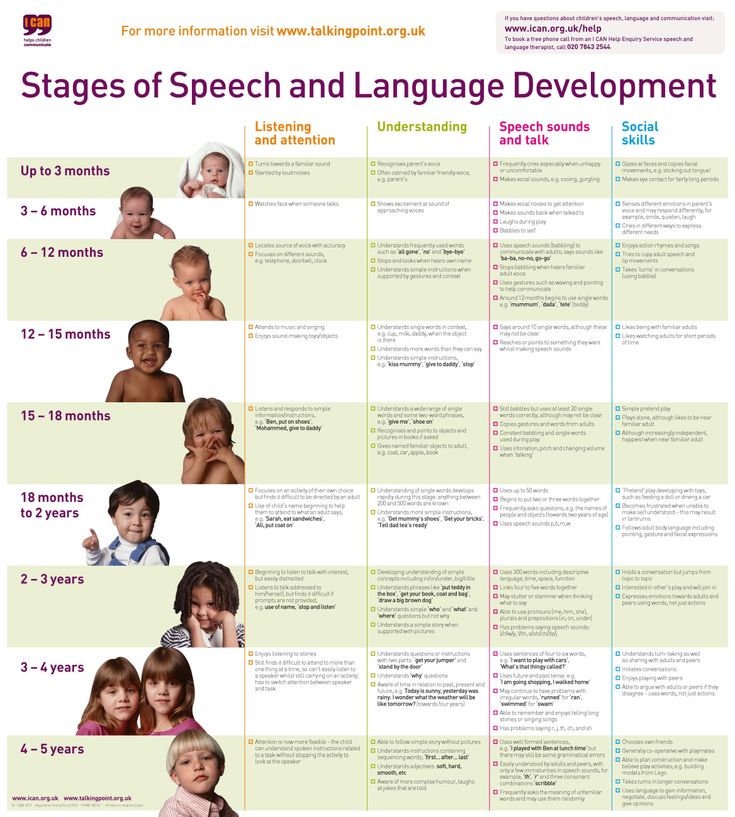 Every parent wants to see in their son or daughter an exemplary student who happily runs to school and diligently performs homework. But what if the child suddenly lost the desire to learn? Should I force it or are there other ways? You will find answers in this article.
Every parent wants to see in their son or daughter an exemplary student who happily runs to school and diligently performs homework. But what if the child suddenly lost the desire to learn? Should I force it or are there other ways? You will find answers in this article.
Stop overprotecting the child and give reasonable freedom to the emerging personality. At the same time, do not worry about the child, always know where he is, what route he follows, and what is happening around him using the Find My Kids application from the AppStore and GooglePlay.
Contents:
- Finding out the cause
- Correct parental position
- How to help a child?
- Psychologist's advice
- 8 effective ways to motivate you to study well
- Is it worth doing homework with a child?
Finding out the reason
Prostock-studio/Shutterstock.com
To figure out why the child suddenly lost all desire to acquire new knowledge at school, you need to find the reason for this behavior.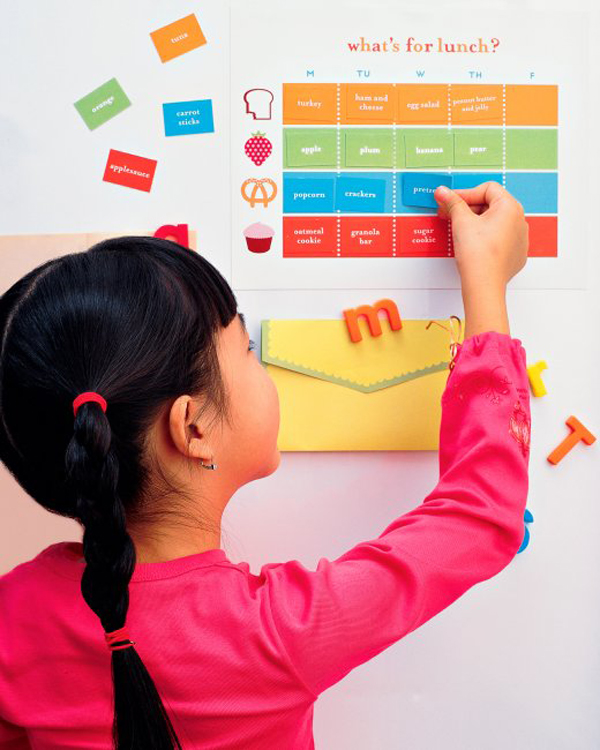 It can be:
It can be:
1. Lack of motivation
The child does not understand the importance and necessity of the learning process. He is bored in the lessons, he does not listen to the teacher, he prefers to do his own thing or chat with classmates.
Prostock-studio/Shutterstock.com
Prostock-studio/Shutterstock.com[/caption] Prostock-studio/Shutterstock.com[/caption]
Why do children not want to do homework? The answer is the simplest. They are not interested.
Unfortunately, the school has little practical experience for life and success, and a lot of gadgets and "distractions". Therefore, students often do not understand - why? Why do they need it? And how is it useful in life? It is important to talk with children, to answer these questions. Show, tell on the example of famous "youth" people. Try to use this knowledge together in life. Praise the student's actions.
For example, you can gather a child's friends and arrange a quest "Why do we need math?" The team that finds more practical examples gets a pizza,
2.
 Problems in the teacher-student relationship
Problems in the teacher-student relationship A case from practice. Dasha has always been a diligent student, she liked going to school, getting good grades, making her parents happy. But suddenly the girl's behavior changed. She became withdrawn, irritable, stopped doing homework. And one day she told her parents that she would no longer go to school. Alarmed mom and dad could not get from their daughter what happened to her. I had to seek help from a psychologist. It turned out that shortly before this, the teacher showed Dasha a notebook to the whole class with the words that the girl does the tasks well, but she writes like a chicken paw. All the children laughed. After this incident, Dasha changed her attitude towards both the school and the teacher.
⠀
Even one careless word of a teacher can offend a child and affect his attitude to learning, not to mention obvious conflicts. This is especially true for anxious and vulnerable children.
3. Conflicts with classmates, ridicule, bullying
Prostock-studio/Shutterstock.com
Case study. Vanya's parents moved to a new area and the boy had to go to a new school. At first he liked everything, both teachers and classmates, but soon his parents noticed that his son began to skip classes. Attempts to find out why he does this have not been successful. The boy continued to lie to his parents that he went to school, while he himself walked around the city at that time. Soon the director called the parents and announced that their son could be expelled from school for systematic absenteeism. On the same day, the mother of Vanya's classmate called. She said that Vanya became a victim of bullying - harassment. The boys bullied him for not smoking like all the other boys in the class and for wearing unfashionable clothes. Her daughter felt sorry for Vanya, and she told her mother everything, hoping that she could help. Vanya's parents were shocked. It turned out that the son simply did not want to devote them to his problems and preferred to endure bullying and ridicule from new classmates.
It turned out that the son simply did not want to devote them to his problems and preferred to endure bullying and ridicule from new classmates.
⠀
It is important for parents to pay attention to all changes in the behavior of their son or daughter and to be able to help the child in time if he has become a victim of bullying.
4. Unfavorable family environment
When parents constantly quarrel and sort things out, it is difficult for a child to concentrate on learning activities. Well, how can you solve a physics problem when dad screams that he will leave the family, and mom echoes that she spent her life on a worthless person?
5. Parental super control
Prostock-studio/Shutterstock.com
There are parents (mostly mothers) who need to control everything that happens in the family. Including the school life of the child. Down to the covers of notebooks and a gift to a classmate for her birthday. What kind of motivation can we talk about in a child, if mom knows better, mom will decide everything?
What kind of motivation can we talk about in a child, if mom knows better, mom will decide everything?
Prostock-studio/Shutterstock.com
6. Low self-esteem, self-doubt
It is difficult for such children to express themselves in school life. Raising your hand to answer a teacher's question, calling a classmate and finding out their homework is a whole problem for them. If, at the same time, parents also make excessive demands on the child and criticize him for the slightest fault, then the son or daughter closes in on himself and follows the path of least resistance. The child starts skipping classes, stops doing homework, brings bad grades. Why try if your efforts will still not be appreciated?
7. Excessive workload of the child after school
Prostock-studio/Shutterstock.com
Monday and Wednesday - swimming pool, Wednesday and Thursday - dancing, the rest of the days - art school. Familiar? Many parents seek to organize a super-saturated leisure for their child. As a result, the psyche includes protective mechanisms, protecting the brain from overwork. The child begins to be lazy and put off doing homework until late in the evening.
As a result, the psyche includes protective mechanisms, protecting the brain from overwork. The child begins to be lazy and put off doing homework until late in the evening.
8. Physiological causes
Hyperactivity, weak volitional regulation of behavior, somatic diseases - this is an incomplete list of what can also affect a child's lack of desire to sit at a desk and do homework.
Combination of causes
The next story is just about that.
Case from practice. Styopa was overweight since childhood and was very worried about it. Physical education lessons turned into torture for him. Styopa could not run a long distance, climb a rope, or push himself off the floor. The teacher constantly scolded him, classmates laughed. In other lessons, the boy also had a hard time. He had no friends, no one wanted to sit at the same desk with him. Stepin's parents were going to divorce, and they were not up to the experiences of their son. A closed and insecure teenager found himself only in computer games. But one day his fate changed dramatically. Through an online game, he met a group of guys who deceived the elderly and took money from them. Soon, the scammers decided to “take into action” Styopa as well. At first it was scary, but gradually he "got a taste" and began to continue the work of his "friends". Finally, Styopa was engaged in a business in which he was successful, and no one laughed at him or humiliated him.
A closed and insecure teenager found himself only in computer games. But one day his fate changed dramatically. Through an online game, he met a group of guys who deceived the elderly and took money from them. Soon, the scammers decided to “take into action” Styopa as well. At first it was scary, but gradually he "got a taste" and began to continue the work of his "friends". Finally, Styopa was engaged in a business in which he was successful, and no one laughed at him or humiliated him.
⠀
As you can see, there may be enough reasons for a child not to want to learn. And most often, this is not one specific problem, but a whole set in which parents have to figure it out.
The right attitude of parents
Prostock-studio/Shutterstock.com
Dear moms and dads! If you force your child to learn , then it is unlikely that something good will come of it . Everything that is done under duress or under fear of punishment will not bring any benefit. Therefore, let's still not force children to learn, but encourage them to do so. And this will help you a competent position of the parent.
Therefore, let's still not force children to learn, but encourage them to do so. And this will help you a competent position of the parent.
Prostock-studio/Shutterstock.com
Prostock-studio/Shutterstock.com[/caption] Prostock-studio/Shutterstock.com[/caption]
Of course, you can force your child to learn. But this will have to be done for 9-11 years.
When we force children, we take their responsibility upon ourselves. But we want our children to be independent and do their homework. Therefore, if possible, set the rules for teaching in the first grade. No need to do homework with a first grader - the function of a parent is to help not be distracted from activities. If the student is older, solve the problem with motivation and encouragement,
Adequate perception of the situation
What do most parents do if their child does not want to study? That's right, take the belt. Surely, your parents did the same, and you also often sin with this.
Surely, your parents did the same, and you also often sin with this.
Shouts, swearing and punishments are left outside the door. They won't help. "Horror stories" about the profession of a janitor - too.
Parents need to understand that a child's unwillingness to learn always has a specific reason.
For information on how to properly respond to disobedience, read the article 10 ways to punish a child without screaming, belting and humiliation.
Support
Prostock-studio/Shutterstock.com
In order for a child to become more independent and learn to cope with their problems, it is important for them to hear from their parents:
- “I believe in you”;
- "Everything will work out";
- "We will solve this problem together";
- "There are no hopeless situations."
Help
Parents can:
- explain incomprehensible material themselves;
- hire a tutor;
- talk to the teacher;
- adjust parent position;
- go with the child to an appointment with a neurologist;
- find a joint solution to the school difficulties of a son or daughter.

Find out if your child is being bullied at school and if the teachers treat him well in order to help and solve the problem in time. Listen to the surroundings and track your child's location in real time with the Find My Kids app from the AppStore and GooglePlay.
Prostock-studio/Shutterstock.com
Prostock-studio/Shutterstock.com[/caption] Prostock-studio/Shutterstock.com[/caption]
Enter into an agreement with the child, expressly written, real. Clearly state what is due for “voluntary” completion of lessons and what “punishment” is for failure to complete assignments. Incentive events work great with older students, for example, the child did his homework all week, on the weekend the whole family goes where the student wanted. Stickers spelling out the word "well done" work great with younger students,
How to help a child?
Prostock-studio/Shutterstock.com
Psychologist's advice
We have a dislike for learning from generation to generation. Even in kindergarten, they start to frighten children: “When you go to school, the teacher will not look at your whims, she will immediately slap a deuce”, “if you behave badly, you will go to the director’s office.” The child is prepared in advance for the fact that learning will be difficult, uninteresting, painful.
Even in kindergarten, they start to frighten children: “When you go to school, the teacher will not look at your whims, she will immediately slap a deuce”, “if you behave badly, you will go to the director’s office.” The child is prepared in advance for the fact that learning will be difficult, uninteresting, painful.
- Try to talk about the school and teachers in a positive way. School is the basis, base, foundation of the whole future life of the child.
When a child's feelings are denied, he quickly loses interest in any business, including studies. The child says: “This is a very difficult task. I will never solve it” and receives in response: “You are just very lazy, everything is difficult for you.”
- Let the children share their fears and concerns with you, even if they seem unfounded.
- A child can find everything he needs in a family. Listen more and judge less, then the children themselves will want to share their problems with you.

The desire to raise a child to be a genius with excellent marks in all subjects leads to nervous breakdowns and low self-esteem, because a son or daughter cannot always reach the bar set by their parents. The same applies to unfulfilled parental expectations, when my mother so dreamed of becoming a ballerina and decided that her daughter must make her dream come true.
The scourge of all parents is the comparison of the child with other children. “And Mashenka gets only fives, and you only bring twos and threes,” “and Svetochka has been doing her homework for a long time, and you keep asking your mother to help.” And the child begins to quietly hate Masha and Svetochka, considering himself a complete loser.
- If you compare a child, then only with yourself: “You see, that year it was difficult for you to remember the multiplication table, but this year you crack it like nuts!”
8 effective ways to motivate you to study well
- Praise your progress more often, even the smallest ones.

- Explain why it is so important to study at school and what it will give the child in the future.
- Do not scold for bad grades, the child is already upset by this fact. Try to find out the reason first.
- Don't "buy" good grades with gadgets and fashion items.
- Talk to the student more often about his dreams and plans for the future.
- It is important to teach the child the correct distribution of time after school, so that he has enough time for rest and for homework.
- The position “not grades are important, but knowledge” is useful for both parents and children.
- Do homework with your child only if he asks you for help.
Is it worth doing homework with a child?
Prostock-studio/Shutterstock.com
Now let's touch on a question that worries many parents. Should I help my child do homework? If you don’t help, he will make a lot of mistakes in his notebook, forget to learn the poem and won’t even remember the leaf craft.
In 2018, the Mail.ru Children portal conducted a survey among Russian parents on the topic of completing homework assignments. It turned out that the majority of parents (70%), together with their children, sit down to do homework every evening, and only 30% of moms and dads have children do their homework on their own.
And here is what today's moms and dads remember about their childhood:
⠀
As we can see, parents' attempts to control the process of completing lessons do not always benefit the child.
What experts recommend:
- In the first grade, parents really need to do homework with their child, but only in order to organize the process itself. Teach your son or daughter simple tricks: first, written assignments are done, then oral ones; a difficult task is first solved on a draft; you need to prepare for the test and exam in advance.
- Make a special time for lessons with your child, for example, from 17:00 to 19:00.
 Help him organize the workplace and space, make good lighting.
Help him organize the workplace and space, make good lighting. - Do not refuse if the child asks you for help. But try to do not for him, but with him.
- Homework is the same work of the child, and only he should be responsible for it. And not mom and dad, who have already learned their lessons a long time ago.
Remember, dear parents! Your task is not to force your son or daughter to study, but to create an atmosphere in the family where the child can share any problems, where he is not evaluated by marks in the diary, and where he will be helped to acquire new knowledge for future adult life.
Children's education:
- The most important thing about school holidays 2020-2021: dates, dates and possible changes
- How to stop being nervous and scolding a child during a DD?
- About school workloads: how to prevent overwork in a child?
- Best smartphones for kids (younger, middle and older students) in 2020
Getting ready for school next year:
- At what age can a child go to school alone? Expert opinion
- Adaptation of the child to school
- How to quickly and easily learn the alphabet with a child
- How to quickly learn the multiplication table with a child
Please rate the article
This is very important to us
Article rating: 0 / 5. Votes count: 0
Votes count: 0
There are no ratings yet. Rate first!
Receive a school preparation checklist to your mail
Letter sent!
Check e-mail
How to get a child to study - how to motivate a teenager to study
Content
- Lack of motivation
- Teacher-student relationship problems
- Conflicts with classmates, ridicule, bullying
- Unfavorable family environment
- Super parental control
- Low self-esteem, self-doubt
- Excessive workload of the child after school
- Praise for accomplishments, even the smallest ones
- Point out positive changes
- Emphasize the child's good qualities
- Not demanding much
- sharing experiences
- Do not compare the child with other children
- Do not scold for bad grades
- Negotiate
- Set an example
- Consider the wishes and aspirations of the child
- Hire a tutor
- Talk about the real benefits of studying
- Inculcate good habits
"There is no 'don't want', only 'must'" is a common expression used by parents whose children refuse to do something they don't want to. For example, study. This and a dozen other demotivational expressions are used when a diplomatic approach no longer helps. The good old “whip” is used, but without the carrot. And at first it may seem that the method works and brings results, because from such a strict control, the estimates really get better. But, unfortunately, this does not last long.
For example, study. This and a dozen other demotivational expressions are used when a diplomatic approach no longer helps. The good old “whip” is used, but without the carrot. And at first it may seem that the method works and brings results, because from such a strict control, the estimates really get better. But, unfortunately, this does not last long.
As a result, the child only learns to deceive and cunning, while at the same time beginning to hate everything connected with education. To prevent this from happening, you should rephrase the expression, replacing the word “necessary” with “want”.
The search engine gives more than two million results for the query "how to get a child to study". We talked about some of the reasons in more detail in this video:
Obviously, a huge number of parents face this problem. There are many reasons why children refuse to study. The first thing you should pay attention to is how well the child has developed mental processes: memory, attention, logic. After all, thanks to them, children better understand and remember what they read, easily focus on tasks and begin to study on their own.
There are many reasons why children refuse to study. The first thing you should pay attention to is how well the child has developed mental processes: memory, attention, logic. After all, thanks to them, children better understand and remember what they read, easily focus on tasks and begin to study on their own.
In addition, the modern education system is built in such a way as to give children the maximum amount of knowledge and, as a result, receive trained specialists. But few people think about how to properly present this knowledge. Children do not have any algorithms and technologies for self-learning, so that the child performs each action easily, meaningfully and understanding why and what result he will receive.
For example, the online course "Learn to Learn" offers methods for mastering knowledge, helps to improve the efficiency of learning, develop logic, memory and analytical skills. The course helps students understand that studying can be easy and fun, and the acquired skills will help them become responsible, self-sufficient and educated.
Now let's look at other, more obvious reasons for poor academic performance.
Lack of motivation
Sometimes even an adult finds it difficult to force himself to go to work in the morning, despite the fact that he understands why he needs it. Now imagine a child who does not understand why he should go to classes every day, if they don’t even get paid for it. The fact is that children, especially in the lower grades, do not understand the importance and necessity of the learning process. Because of this, it becomes boring and uninteresting for them to listen to the teacher, and even more so to spend time on homework. It is important not to force the child to study “through I don’t want to”, but to calmly explain why he needs education. Show, tell on the example of famous influencers, use school knowledge in life and be sure to praise the child for all the actions. Positive reinforcement is an important component in building motivation.
Negative motivation (fear, pain, duty, shame) traumatizes the child, hinders his intellectual activity and destroys trust in parents. There are many positive tools. For example, the reward system. Did your child do their homework for a week on their own? This is an excuse to go to your favorite ice cream parlor or order pizza.
There are many positive tools. For example, the reward system. Did your child do their homework for a week on their own? This is an excuse to go to your favorite ice cream parlor or order pizza.
At the free marathon "Motivation and Education of Children" we will tell you how to motivate your child to study at school, so that he starts learning on his own, stops suffering from homework and torturing you.
Problems in the teacher-student relationship
It may happen that the teacher does not agree with the position of the student on some issue, and this negatively affects the grades in the subject. It may be that the student himself provoked the conflict with his behavior, to which the teacher reacted with a deuce in the diary. Or the problem arose because of careless criticism of the student. Situations are different, but they can discourage the student from learning. In this case, you should talk to the child, find out what is bothering him. After that, also talk with the teacher in order to understand what is the cause of the conflict and try to eliminate it.
Conflicts with classmates, ridicule, bullying
Bullying is a constant deliberate negative action directed at a child by another child or a group of children. Almost all students face bullying: someone is directly involved in it, someone becomes a victim, and someone is watching what is happening. Bullying becomes the reason that the child begins to skip, does not want to study and closes in himself. This is a very serious problem that can negatively affect the personality of the child. If you notice that your child's behavior has changed, invite him to talk. The sooner you know about the problem, the easier it will be to deal with it.
Unfavorable family environment
If parents in a family constantly quarrel, sort things out, doing this in front of the child, it becomes difficult for him to focus on his studies. How can you think about solving a math problem when there is screaming and noise all around?
Parental oversight
Sometimes it is very important for parents to control everything that happens to relatives in the family and outside it. This also includes the school life of the child. It's not just about grades, but even designing workbooks, a diary, or preparing a birthday present for a classmate. There can be no talk of any motivation, because mom or dad will decide everything.
This also includes the school life of the child. It's not just about grades, but even designing workbooks, a diary, or preparing a birthday present for a classmate. There can be no talk of any motivation, because mom or dad will decide everything.
As a result, parents have to force their child to study. But it's absolutely not worth it. Why? We talk in this video:
You can get a comprehensive solution to the problem of a child's education in our free online lesson "How to motivate a child to learn independently."
Low self-esteem, self-doubt
It is difficult for insecure children to express themselves in school life. Asking a teacher a question, calling a classmate and finding out homework is a whole problem. If, at the same time, at home, relatives make excessive demands on the child, severely criticize for the slightest fault, call him lazy, then sooner or later he will close in himself and take the path of least resistance: he will start skipping classes, stop doing homework and will bring bad grades . Why try if your efforts are not appreciated.
Why try if your efforts are not appreciated.
Excessive workload of the child after school
Many parents strive to organize super-saturated leisure time for their child. For example, on Monday, Wednesday and Friday - English and the pool, on Tuesdays - basketball, and on Thursday - art school. But as a result, the psyche includes protective mechanisms, protecting the brain from overwork. The student becomes lazy and starts postponing the lessons. Pursuing even the most noble goals, parents forget that a child is not a robot and he needs rest just like an adult.
13 tips for parents on how to motivate their child to study
Praise success, even the smallest
You don't have to expect 100% success from a child to praise him. It is important to notice any progress. And the age of the student does not matter. Teenagers, like elementary school students, also need support and praise.
Point out positive changes
If something is difficult for a child, still support him every time. You can say: “Wow! Look how much better you have become! If you continue in the same vein, you will do just fine!” But never say something like, "Try a little more, and then it will be fine." With such phrases you devalue small achievements.
You can say: “Wow! Look how much better you have become! If you continue in the same vein, you will do just fine!” But never say something like, "Try a little more, and then it will be fine." With such phrases you devalue small achievements.
Emphasize the child's good qualities
It is important to understand that a child's life does not revolve around school. Parents should always notice the good qualities of their child, even if these are characteristics far from learning. For example, if a child knows how to help others, has charisma, a great sense of humor, charm, or is excellent at negotiating, point out these qualities to him. Such an emphasis will help in building adequate self-esteem, which, in turn, will create self-confidence.
Not demanding much
No one is protected from overwork and burnout, not even a schoolboy. Just imagine how stressful a child is who goes to school, then goes to a few circles, and then comes home and sits down for homework. Don't expect your child to be perfect. It is normal that some subjects are more difficult for him and the student needs more time to understand them.
Don't expect your child to be perfect. It is normal that some subjects are more difficult for him and the student needs more time to understand them.
share experiences
If a child tells you that he doesn't like an object, don't scold him, but share the experience with him. For example, you can say: “Yes, I understand that you don’t like physics so much, but it needs to be studied. You can always share your thoughts with me so that we can discuss how you feel.”
Do not compare the child with other children
Comparisons always only provoke resentment and practically do not affect motivation. The successes of the “son of my mother’s friend” will not help the child to correct grades and start learning on their own, but will only cause a reluctance to study on the principle “I won’t succeed anyway”.
To help a child do what is necessary and important, one should “gather” universal motivation. In our free lessons of the course on motivating children, we will talk about the causes of demotivation and what to do about it, why it is impossible to force a child to study well, as well as how to change the child's behavior and restore trust and openness in parent-child relationships.
And in this video we talk about how children's behavior will change if you stop forcing them to learn:
Do not scold for bad grades
Motivation for progress and achievement must be positive. A bad score only shows that you need to try harder to improve the result. If you punish a student for a bad grade with all sorts of restrictions, his motivation will be negative. And it forms either fear or nihilism.
Negotiate
A contract is one of the most reliable and effective tools for working with children's motivation. It should be noted right away that the contract should be beneficial not only to you, but also to the child. You can not demand fives from a schoolboy without offering anything in return. For example, you might say, "If you do your homework for a week, we'll go to the movies this weekend. " Or: “If you write a good test, you can invite your friends and play with them on the console at the weekend.”
" Or: “If you write a good test, you can invite your friends and play with them on the console at the weekend.”
Motivation is an art. In order for a child to want to study independently, it is necessary to find the right approach. In a practical online course for parents, we will tell you how to set up parental authority and properly negotiate with your child so that he does not let you down and does not break agreements.
Set an example
It is pointless to try to teach your child to do homework while you are scrolling through TikTok or watching a series, for example. Children love to copy their parents. So if the goal is to instill in your child a love of reading, put down your smartphone and read an interesting book.
Consider the wishes and aspirations of the child
To motivate children, their interests must be taken into account. Ask your child what they like to do. If he is interested in cinema, it is worth figuring out how to connect screenwriting with a desire to learn. You can come up with interesting tasks: for example, offer to start writing a fascinating script about the school so that studies start to seem more interesting.
You can come up with interesting tasks: for example, offer to start writing a fascinating script about the school so that studies start to seem more interesting.
Hire a tutor
If one of the subjects is especially difficult for a child, then a good solution would be to hire a tutor. Read our article on how to choose the right specialist.
Talk about the real benefits of studying
Children do not understand why parents get up early every morning and go to work, why they improve their qualifications, strive to improve. That is why you should not start a conversation about the fact that fives mean a comfortable future. It is better to talk about the real benefits of studying, for example, that it will make him more free, give him the opportunity to try himself in different areas, understand what he really likes, and choose the right profession.
Instill good habits
Curiosity is fueled by the habit of learning something new. And this is one of the best qualities that motivates a person to develop intelligence throughout life.












